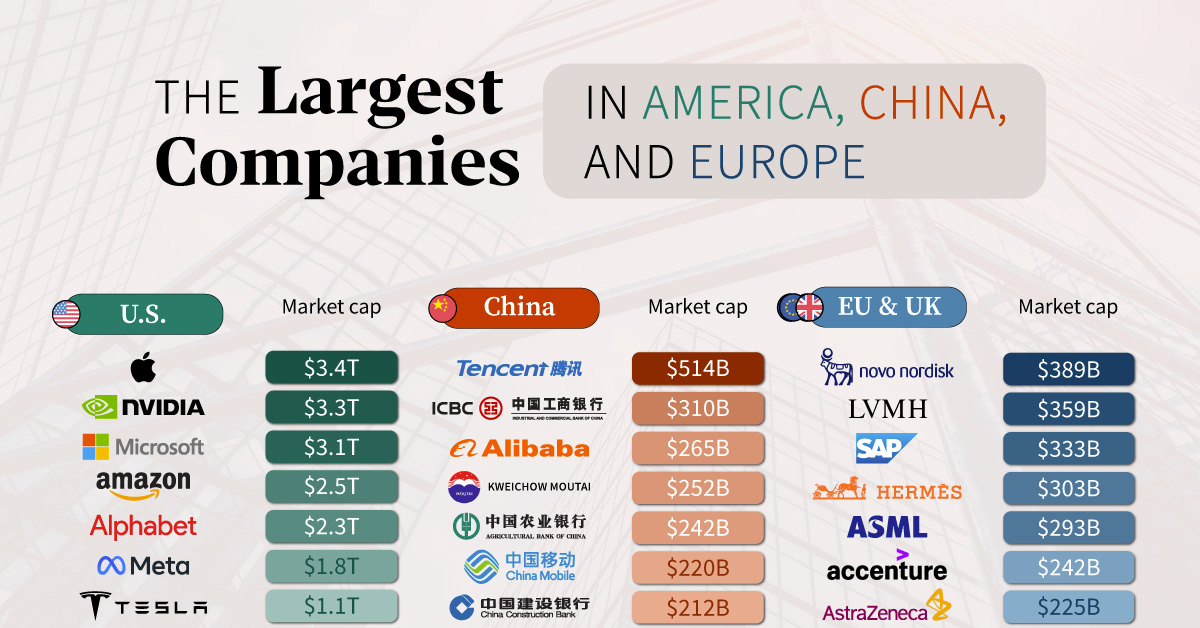Global Business Titans: The Powerhouse Corporations Reshaping World Economy

The global corporate landscape tells a fascinating story through the lens of market capitalization. When we examine the top 10 companies across different regions, a compelling narrative of economic power and technological dominance emerges. These disparate market valuations aren't just numbers—they're a window into the shifting dynamics of global business and innovation.
Our investigation reveals a striking pattern of concentration and divergence. Some regions showcase remarkable technological prowess, with their corporate giants towering over traditional industrial players. The uneven distribution of market value reflects deeper trends: technological innovation, digital transformation, and the changing nature of global economic influence.
From Silicon Valley's tech titans to emerging market champions, these market capitalizations paint a nuanced picture of contemporary economic power. They highlight how companies are no longer defined by physical assets, but by their ability to innovate, disrupt, and create value in an increasingly digital and interconnected world.
By delving into these market capitalization patterns, we uncover more than just financial statistics—we reveal the strategic shifts, technological revolutions, and economic transformations that are reshaping our global business ecosystem.

